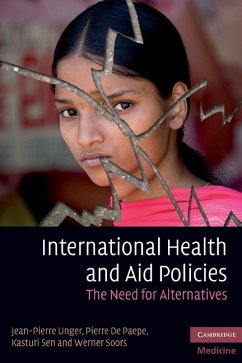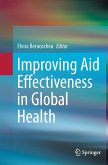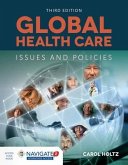International health and aid policies of the past two decades have had a major impact on the delivery of care in low and middle-income countries. This book argues that these policies have often failed to achieve their main aims, and have in fact contributed to restricted access to family medicine and hospital care. Presenting detailed evidence, and illustrated by case studies, this book describes how international health policies to date have largely resulted in expensive health care for the rich, and disjointed and ineffective services for the poor. As a result, large segments of the population world-wide continue to suffer from unnecessary casualties, pain and impoverishment. International Health and Aid Policies arms health professionals, researchers and policy makers with strategies that will enable them to bridge the gaps between public health, medicine and health policy in order to support robust, comprehensive and accessible health care systems in any political environment.
Hinweis: Dieser Artikel kann nur an eine deutsche Lieferadresse ausgeliefert werden.
Hinweis: Dieser Artikel kann nur an eine deutsche Lieferadresse ausgeliefert werden.
'International Health and Aid Policies: The Need for Alternatives represents an important and comprehensive effort in gathering the evidence of the grave consequences on developing countries' health systems of some international health and aid policies that promote excessive reliance on disease specific programs and commercialised care. The book proposes alternative policy scenarios ... and highlights the key role of health system researchers in influencing the development of pro-equity international health policies and the evaluation of their impact. The thorough review of historic data and trend analysis will serve scholars and decision makers alike.' Mirta Roses, Pan American Health Organization, Regional Office of the World Health Organization








